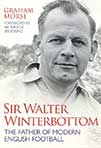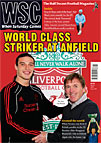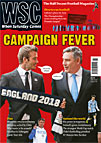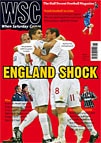 The father of modern English football
The father of modern English football
by Graham Morse
John Blake, £17.99
Reviewed by David Stubbs
From WSC 317 July 2013
My earliest memory of Walter Winterbottom, manager of England from 1946 to 1962, is from a second-hand copy of the FA Book For Boys. His name spoke to my infant sense of humour, though I assumed he harked from a more didactic, purposeful age when no one had time to find the word “bottom” amusing. I also heard him providing co-commentary for the 1966 World Cup final, his vowels a strange mix of received English and suppressed Lancastrian. Like his successor, Alf Ramsey, Winterbottom had felt obliged to brush up on his elocution if he was to be taken seriously. Such class considerations abounded in his era, in all their absurdity – author Graham Morse recounts how FA secretary Stanley Rous had been reprimanded by the FA chairman for wearing plus fours when his predecessor, Sir Frederick Wall, had worn a top hat and frock coat to games.
Winterbottom himself was quite the modern man – an Oldham lad who had made his way in the world on academic merit, who understood the value of tactics, technique and advanced coaching skills. He gained a reputation as a “pedagogue” for trying to impose these methods on often-reluctant players, Stanley Matthews in particular, who thought the best way to play was to bloody well get on playing, and that skill was something you were born with. Winterbottom understood what he was up against – that in England the game had deep-rooted, violent beginnings which encouraged a crude approach, whereas in Europe and South America the game had been taken up at more middle-class levels, and was more open to theory-based technically sophisticated methods.
Winterbottom was England manager when the team lost 1-0 to the US at the 1950 World Cup. However, his hands were tied. He was never allowed to pick the team – a dubious panel of selectors did this job, whose whims once led them to grant 38-year-old Leslie Compton his first cap. He also had to put up with Matthews being ordered on a goodwill tour of Canada during the tournament. As for the 1953 defeat to Hungary, he was almost alone in understanding that the Magyars would be formidable opponents. Contemporaries such as Chelsea manager Ted Drake, however, continued to insist that England’s problem had been physical fitness rather than formation and tactics.
Morse is the son-in-law of Winterbottom, who would have been 100 this year, and his account is naturally sympathetic. It’s deservingly fulsome as well as being engagingly redolent of his era, in which Winterbottom was paid just over £1,000 a year, of players arriving at games by tram, laced balls carried around in nets, and courtships shyly conducting on hills overlooking mill chimneys. The title isn’t an overstatement – Ron Greenwood, Bobby Robson and Trevor Brooking all took on board Winterbottom’s philosophy. That England continue to fail is more to do with the institutional obtuseness Winterbottom himself never managed to break down, as opposed to his enlightened approach, whose time may not yet properly have come.



